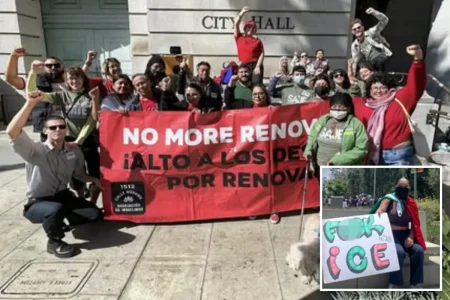Israeli Authorities Launch Investigation Into West Bank Shooting Amid Heightened Tensions
Military Operations Intensify as Officials Review Controversial Incident
In a region already fraught with escalating violence, Israeli authorities announced yesterday that they have opened an investigation into a shooting incident in the occupied West Bank, which occurred during what has become one of the most extensive military operations in the territory in recent months. The announcement comes as Israeli forces continue widespread security operations across several Palestinian cities and refugee camps, raising concerns among international observers about the humanitarian impact of these actions.
“We take all such incidents seriously and are conducting a thorough review of the circumstances,” said a spokesperson for the Israeli Defense Forces (IDF) in a statement released to the press. The incident, which reportedly took place near Jenin on Tuesday evening, has sparked outrage among Palestinian officials who claim it represents a pattern of excessive force. Israeli officials maintain that their operations target militant infrastructure and individuals planning attacks against Israeli civilians, though they acknowledged the need to examine this particular case carefully. The review comes at a critical moment when trust between the communities has deteriorated to perhaps its lowest point in years, with each side viewing the other’s actions through a lens of deep suspicion.
Historical Context and Current Climate of West Bank Operations
The West Bank has long been a flashpoint in the Israeli-Palestinian conflict, but the current wave of military operations represents one of the most sustained campaigns in recent history. Since tensions escalated following attacks inside Israel earlier this year, the IDF has conducted near-daily raids in areas previously under greater Palestinian Authority control. These operations have focused primarily on cities like Jenin, Nablus, and Hebron, which Israeli security officials describe as hotbeds for militant activity. According to Palestinian health officials, the operations have resulted in dozens of casualties over recent weeks, including both militants and civilians, while Israeli authorities report the arrest of hundreds of suspects allegedly connected to planned attacks.
Security analysts point out that the current situation reflects a significant shift in Israeli military strategy in the West Bank. “What we’re seeing is a much more proactive approach from Israeli forces,” explained Dr. Yoav Stern, a security studies professor at Tel Aviv University. “Rather than reactive measures, there’s a concerted effort to dismantle what they perceive as terrorist infrastructure before attacks can be launched.” This approach has been defended by Israeli officials as necessary for public safety but criticized by human rights organizations that argue it collectively punishes Palestinian communities. The intensification of these operations has coincided with a rightward shift in Israeli politics, with government officials adopting increasingly hardline positions on security matters related to the Palestinian territories.
Diplomatic Fallout and International Response
The shooting incident and broader military campaign have drawn significant international attention, with several key allies urging restraint while acknowledging Israel’s security concerns. The United States State Department issued a statement calling for “a transparent investigation” into the shooting while reaffirming “Israel’s right to defend its citizens against terrorism.” Meanwhile, European Union representatives have expressed “deep concern about the escalating violence” and called for proportionality in security operations. United Nations agencies operating in the region report increasing difficulties providing humanitarian assistance amid the intensified military presence.
Jordan and Egypt, two Arab nations with diplomatic ties to Israel, have been particularly vocal in their criticism. Jordan’s Foreign Minister emphasized that “military solutions will not bring stability to the region” during an emergency meeting of Arab League representatives in Cairo yesterday. Palestinian Authority President Mahmoud Abbas has used the incident to renew calls for international protection for Palestinians, arguing that the current situation demonstrates the failure of the Oslo framework to provide security for his people. Diplomatic sources indicate that behind closed doors, several countries are pressing Israel to conclude its operations quickly, fearing that prolonged military activity could trigger wider regional instability at a time when multiple Middle Eastern conflicts are already stretching diplomatic resources thin.
Humanitarian Impact and Civilian Experience
For residents of the affected areas, the ongoing military operations have dramatically disrupted daily life. In Jenin’s refugee camp, where some of the most intense operations have taken place, local officials report significant damage to infrastructure and restricted access to essential services. “We haven’t been able to reopen schools for more than two weeks,” said Ibrahim Najjar, a municipal council member in a northern West Bank town who spoke on condition of partial anonymity. “Families are afraid to let their children out, and medical teams struggle to reach those in need during operations.” Economic activity has virtually halted in some areas, with checkpoints and movement restrictions preventing workers from reaching jobs and merchandise from reaching markets.
Humanitarian organizations operating in the West Bank have reported a substantial increase in displacement, with families moving temporarily to stay with relatives in areas less affected by the military operations. The psychological impact has been particularly severe among children, according to mental health professionals working with affected communities. “We’re seeing significantly increased rates of anxiety, sleep disturbances, and regression in developmental milestones among children exposed to these raids,” explained Dr. Layla Hamdan, a psychiatrist with an international medical organization. “Even when physical injuries aren’t present, the trauma of these experiences has lasting effects.” Israeli officials maintain that they take measures to minimize civilian impact, including advance warnings when possible, but acknowledge that the nature of counter-terrorism operations in densely populated areas creates unavoidable complications.
Security Perspectives and Future Implications
Security experts from across the political spectrum agree that the current situation presents no easy solutions. Israeli security officials point to intelligence indicating multiple thwarted attack plans as justification for the ongoing operations. “These interventions have prevented significant casualties inside Israel,” said a former Shin Bet official who requested anonymity to speak frankly about security matters. “The alternative to these operations isn’t peace—it’s attacks on Israeli civilians.” Palestinian security analysts counter that the heavy-handed approach undermines moderate Palestinian leadership while strengthening extremist narratives.
The investigation into the specific shooting incident represents a microcosm of these larger tensions. For Israeli authorities, such reviews reflect what they characterize as their commitment to accountability within a complex security environment. For Palestinian officials, the investigation process itself lacks credibility, with past reviews rarely resulting in significant disciplinary action against Israeli personnel. As the military operations continue with no clear endpoint, both communities face uncertain futures. “What we’re witnessing isn’t sustainable for either Israelis or Palestinians,” noted veteran peace negotiator Dr. Sarah Hirschhorn. “Without addressing the fundamental political issues, these security operations—regardless of how they’re conducted—represent crisis management rather than conflict resolution.” As residents on both sides await the results of the shooting investigation, the broader questions about the path forward remain unanswered amid one of the most volatile periods in recent West Bank history.








